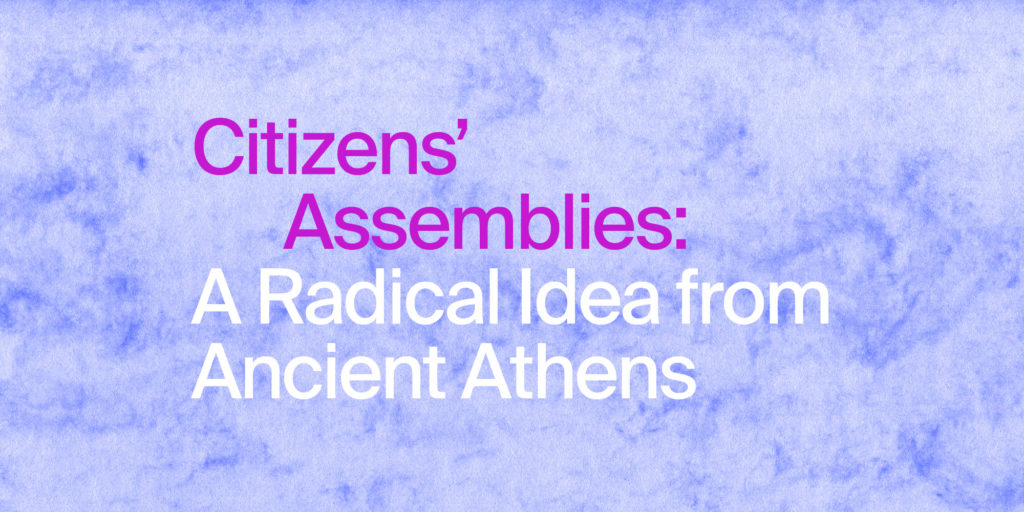Live on Zoom, a recording is below
April 6, 9am PT; 6pm CET
The idea of citizens’ assemblies has recently experienced an enormous upswing on both sides of the Atlantic. As in ancient Athens, citizens are selected randomly to deal with political matters. The selection process guarantees diverse, representative groups and circumvents many of the flaws of democratic elections. But are citizens’ assemblies really capable of solving complex political problems? How can they be protected from political interference? And can lottery-generated assemblies really help to restore the waning trust in democracy and its institutions?

Larry Diamond is a political scientist and a senior fellow at the Hoover Institution and the Mosbacher senior fellow at the Freeman Spogli Institute for International Studies, which is Stanford University’s main center for research on international issues. Diamond’s research focuses on democratic trends and conditions around the world and on policies and reforms to defend and advance democracy. He is a highly published writer as the founding coeditor of the Journal of Democracy, author of six books, and editor of nine. In 2019, he and James S. Fishkin initiated “America in One Room”, a gathering of 500 American voters selected to form an accurate, representative sample of the entire American electorate in all its political, cultural, and demographic diversity.

Christine Landfried is an emeritus professor of political science at the University of Hamburg. She studied history, political science and international law in Heidelberg and at Harvard University. Visiting professorships have led her to Sciences Po Paris, the University of California at Berkeley and the Yale Law School. As emeritus, she held a Max Weber professorship at New York University from 2014 to 2016. A central focus of her work is on political finance, constitutional jurisdiction, European integration and the role of art in democratic societies. In the context of her studies of the EU, she analyzes the conditions under which cultural, economic and political differences can be a potential for democratic governance. Christine Landfried is a 2022 Thomas Mann Fellow.

James S. Fishkin holds the Janet M. Peck Chair in International Communication at Stanford University where he is Professor of Communication, Professor of Political Science (by courtesy) and Director of the Center for Deliberative Democracy. Fishkin is best known for developing the practice of Deliberative Polling which is a type of public consultation that employs random samples of the citizenry to explore how opinions would change if they were more informed. His work on deliberative democracy has stimulated more than 100 Deliberative Polls in 28 countries around the world. In 2019, he and James S. Fishkin initiated “America in One Room”, a gathering of 500 American voters selected to form an accurate, representative sample of the entire American electorate in all its political, cultural, and demographic diversity.

Craig Calhoun (host) is a University Professor of Social Sciences at Arizona State University. As a strong advocate of using social science to address issues of public concern, he was the Director of the London School of Economics and Political Science and then became the first president of the Berggruen Institute. He is the author or coauthor of 9 books, editor of another 22, and has published more than 70 journal articles and 100 book chapters that address culture, social movements, education, communication, religion, nationalism, the impact of technology, capitalism and globalization, critical theory and philosophy, and contemporary and historical empirical research. His work has been widely reprinted in anthologies and translated into 21 languages. Calhoun is Member of the Advisory Board of the Thomas Mann House.
